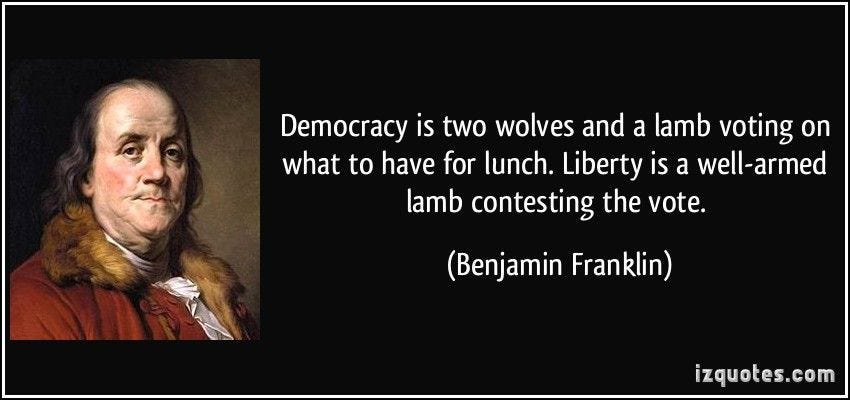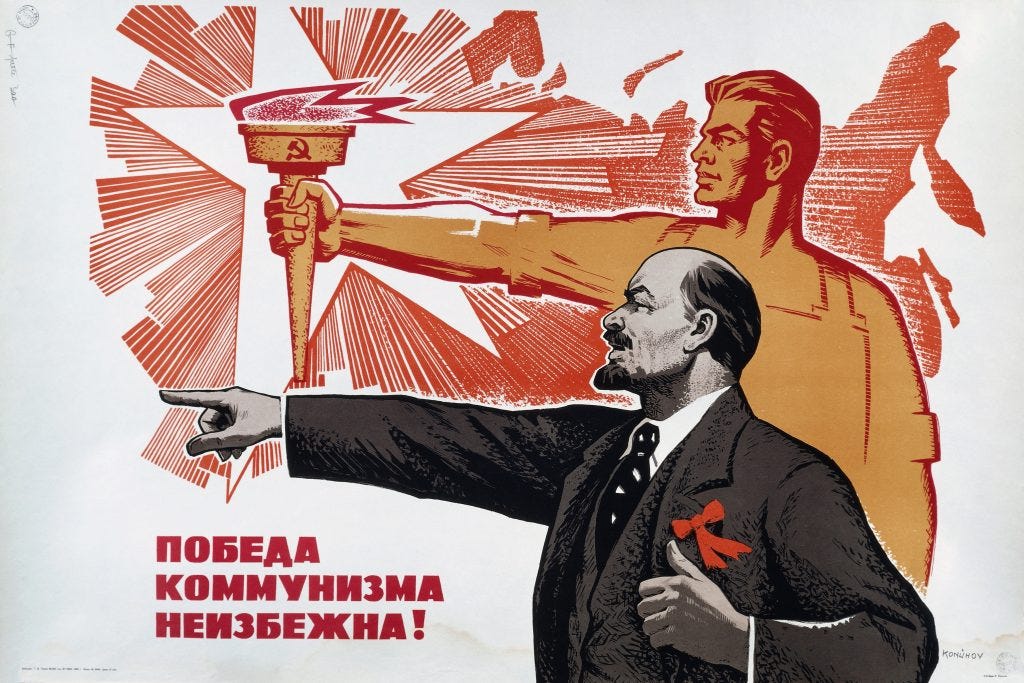A new contract

The problems I described in my previous post are just the latest manifestations of Western civilization’s political malaise. The October issue of the Atlantic Monthly was dedicated to the question “Is democracy dying?” The articles in it are fascinating testaments of the confusion surrounding that malaise. While most of the writers can describe the symptoms and the mechanics of the problem, they are ALL infused with a heavy dose of TDS (Trump Derangement Syndrome), which prevents them from focusing on the causes. The question is important, but the way it is discussed is just as dishonest in the Atlantic as it is in the Hungarian public discourse. Few would disagree with the statement that communism is antidemocratic. That the Democratic People's Republic of Korea is NOT the best example of what the word ‘democratic’ is supposed to mean. Yet, the same people who would defend the idea of democracy, relentlessly advocate policies that are pushing our democracy in that direction. The idea of democracy has become a fetish into which its devotees project their personal fantasies. The biggest problem we have is the lack of consensus about the meaning of the word. The founders of the United States were quite divided on the nature of democracy in the country they were in the process of creating. The fulcrum was an essential question of democracy: should power be centralized or decentralized? For them, at the time, that was the most important question. But it is just one of many we could ask if we want to understand what democracy is, could or should be. What are we talking about? Again: the meaning of words. What is democracy? People on both sides of the political divide are using these expressions without ever considering the need to properly define what they mean. Benjamin Franklin’s definition above is my favourite. It clearly exposes the most important flaw of democracy, the possibility of it turning into a dictatorship of the majority. Mob rule. A path to totalitarianism. Both Hitler and Mussolini got into power through the democratic process. So did Hugo Chavez and even Stalin. He was voted into every office he held. Democracy is not inherently moral. It can easily lead to bloody dictatorships without any subversion of its own internal processes. What is justice and fairness? For some it is individual, for others it is social. Social justice warriors have no qualms about dispossessing some for the benefit of others. For some, the top 1% of income earners paying 40% of all income taxes is not ‘fair’ enough. For some, the overt racism of deciding who gets in to a university based on the color of their skin IS JUSTICE. What is equality? For some, it is equal treatment, for others it is equal outcome. As Hayek pointed out, these two interpretations are mutually exclusive. Yet, both sides of the political divide pretend that their interpretation is the ONLY one that counts, the only one that matters. What is liberalism, socialism and capitalism? There is no way to know! The dictionary definition of liberalism is an alphabet soup of confused and often contradictory ideas. We seem to have no problem calling both Sweden and Stalinist Russia Socialist. Just about any communist dictatorship had one of the words ‘socialist’, ‘democratic’ or ‘people’s’ in their official name. Shouldn’t that put some questions in our minds about the meaning of these words? Especially when they are used by self identified Marxists? What does Bernie Sanders mean when he is talking about socialism? How would it differ from the socialist dreamland where he spent his honeymoon – in the Union of Soviet Socialist Republics? Capitalism may be the most confused expression of all. It may mean the system that we have, the one we happen to be talking about; it may mean the free market entrepreneurial system in general; the corrupt, rent seeking cronyism of Western democracies; it can mean Hungarian or Russian style authoritarian kleptocracies or a Marxist fantasy of exploitation projected onto Western welfare socialism. When referring to democracies, people in the public discourse use the expressions ‘liberal’ and ‘social’ interchangeably. Most Western democracies have elements of both. The liberal aspect is addressing civil rights, mostly of minorities, while the ‘social’ aspect is concerned with economic equalization as in education, social security and health care. The crisis of democracies is rooted in the illiberal nature of social democracies and our apparent collective unwillingness of separating the two. Socialism is fundamentally illiberal. Socialism is fundamentally authoritarian. Socialism is fundamentally destructive. The question is clearly on the minds of a great number of speakers, writers and debaters. Interestingly, only leftists seem to perceive a problem. None of the Trump supporters or the Fidesz voters are questioning democracy. Any and everybody who is alarmed by the health of democracy are on the political left. One might even think that they are just sore losers. There were no republican riots shouting “Not my president!” after the election of Barak Obama. None of the intellectuals concerned about the threats to democracy would entertain the idea that their interpretation of what liberal vs social democracy is, may be responsible for its perceived problems. That their vision of democracy may not be either liberal or democratic. Or that it may be responsible for the destruction of civil society. They ALL put the blame outside of their own ideological framework. The writers of the Atlantic special may call themselves either social or liberal democrats, but they are all globalists. They all see the solution to the problems of democracy in ever increasingly centralized bureaucracies.
Ian Bremmer, the author of “Us vs Them” wants to rewrite the social contract. Every one of his suggestions would involve a massive increase in the role of the state in our lives. Universal basic income, closer cooperation between government and private businesses, and so on. The problem he sees is Trump and Brexit, his solution is the new social contract and global integration.
Stephen Holmes, the co-author of “The Cost of Rights” sees the problem of the left in not being diplomatic and astute enough in handling the right, making them understand that allowing the wise and benevolent leftists to disposses them is for their own good.
Levitsky and Ziblatt in “How Democracies Die” see the problem in politics, in the slow degradation of standards of civility, a process through which the unscrupulous autocrats will eventually get the upper hand.
The Trump derangement Syndrome of David Frum is a sight to behold. He even wrote a book, “Trumpocracy” as a testament to it.
Yuval Noah Harari advocates the same. More socialized and globalized ‘democracy’.
What is common in the views of all these intellectuals is the unshakable belief in the righteousness of liberal/social democracies. ALL describe the symptoms with varying degree of honesty, but none of them can grasp the actual problem, the socialist overreach, the political disenfranchisement of vast groups of the citizenry. In their mind, if Fukuyama was wrong, he was only so because he underestimated the enemy. The nature and legitimacy of democracy is never questioned. But it should be.
Clueless losers at fault
Whose fault is the dying of democracy (whatever we mean by the word)? Is it really an upsurge of racism and intolerance? Is it trans-, xeno-, homo-, islamo- and whatever elso-phobia as we are led to believe? Are we witnessing the rebirth of Fascism? Or could it be that the successes of Trump, Orbán, Salvini, Kaczyński, Le Pen and the Brexit vote are reactions to the excesses of the left? Could it be that it is just a response to: postmodernist relativism, the Frankfurt school’s nihilism, the divisive identity politics, the destruction of civil society and traditional values, the denial of biological realities, the corruption of science, language and the arts through politicizing it beyond recognition, the relentless attacks on Western civilization and its values including free speech and the presumption of innocence, the demonization of individualism and nationalism and the systematic destruction of democracy through the delegation of ever more power to supranational organizations and their unelected bureaucracies such as the EU, the UN, WTO and other globalist organizations? Now hold that thought for just a second. The first person who is yelling “FIRE!” is usually the arsonist. Democracy does have problems, but they were all created by the political left.
Clueless
In this presentation, Peter Zeihan points to a few interesting facts about the changing political landscape in the US. The essence of his point is that the democrats no longer know what their constituency is. The problem is global. The primitive Marxist dichotomy of the capitalists vs the oppressed proletariat just doesn’t work in a post-industrial world. On the brink of the next industrial revolution which will bring economic and social disruption on a massive scale, the political left is clueless. We have serious problems and they are obsessing about tweets and minor tweaks to labor laws? Trying to put the complex problems of the 21st century into a 150 years old Marxist straight-jacket? ….. and wondering why it has no appeal to the electorate?
Losers
The leftists, the globalists, the supra-nationalists are losing the arguments and it is driving them mad. Since they appear to be unable to think outside of their ideological framework, they are unable to understand the problems they would need to address. Democracy is dying because we no longer have clear ideas of what we can expect from it, we no longer have a shared vision about the meaning of freedom and the pursuit of happiness. These ideals have been hopelessly muddied by socialist ideas. Our ideas are partisan because our understanding of the world, our understanding of reality, truth and evidence have become partisan. How do we see the world? As something that we are masters of or something that we need to align ourselves with? What is our primary driver? Emotions or reason? Are we full of wishful thinking or reasoned wisdom? What is our vision? Constrained or unconstrained? Are we r or K selective? Socialism, globalism and cultural relativism have predictable trajectories which, left unchecked, inevitably lead to ruin. Maybe we do need a new contract, but what we need far more than that is a rethinking of our foundational ideas and the practices we derive from them. Unless we can find a common ground, a list of basic democratic principles we can all agree on and a way to remove everything else from the sphere of democratic decision making, we will end up in a truly ugly place where no one wants to be. But maybe we won’t. Maybe social democracies and all those wonderful well-meaning people championing its ideals will figure out a way to eliminate the destroyers of democracies: the Trumps, the Orbáns, the Putins and the Le Pens and we will happily march toward equality all across the globe under the leadership of our wise comrades. It will be a world where everybody will contribute according to his/her or zer abilities, but everybody will receive according to their needs. A world where we will all love and respect one another; a world of limitless possibilities, where you can be a peasant in the morning, a brain surgeon in the afternoon and a concert pianist in the evening. It will be a paradise on earth.

I just wouldn’t bet on getting there…….


